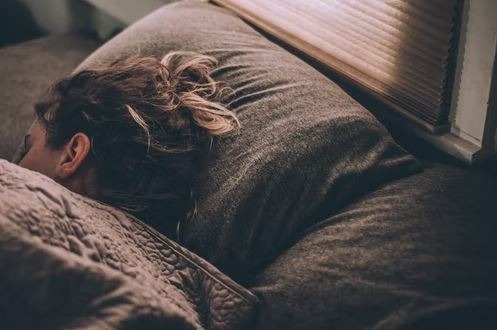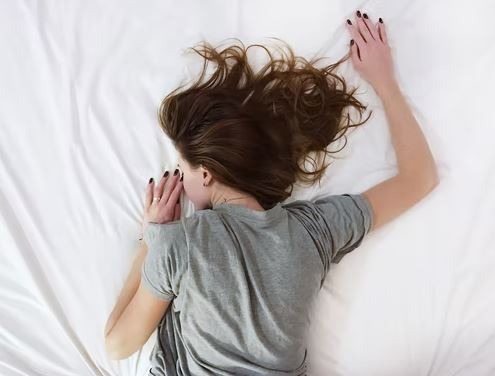Getting good sleep is crucial to overall health, just like eating a balanced diet, staying hydrated, and exercising frequently. Although the precise reasons why people need to sleep are still unknown, sleep specialists concur that getting a good night’s sleep regularly has many advantages.
The body goes through several repairing and maintaining processes while sleeping that touch almost every part of the body. As a result, getting enough sleep or not enough sleep affects the body’s physical and mental health.
Helps You to Maintain or Drop Pounds
Numerous studies have linked short sleep, which is defined as getting less than 7 hours per night, with a higher body mass index and a higher risk of weight gain. A 2020 analysis discovered that adults with less than 7 hours of sleep each night had a staggering 41 percent higher risk of becoming obese. Longer naps did not raise the risk, however. Numerous elements, including hormones and the desire to exercise, are thought to have an impact on how much sleep contributes to weight gain.
For instance, lack of sleep causes ghrelin levels to rise while leptin levels fall. Leptin and ghrelin are two hormones that affect how hungry or full we feel. This might make us feel hungrier and overeat. Numerous studies that have shown that people who are sleep deprived have a larger appetite and tend to eat more calories support this.
Additionally, lack of sleep may make you crave foods that are higher in sugar and fat due to their higher calorie content as a way to make up for a lack of energy. To make matters worse, feeling exhausted after a night of insufficient sleep might make you lack the motivation to work out at the gym, take a walk, or engage in any other physical activity you find enjoyable. So, putting sleep first may help maintain healthy body weight.
Increases Productivity and Focus
Different aspects of brain function depend on sleep. Lack of sleep hurts cognition, concentration, productivity, and performance. A specific study on overworked doctors serves as a good illustration. Clinically significant medical errors were found to be reported by doctors with moderate, high, and very high sleep-related impairment 54%, 96%, and 97% more frequently, respectively.
In a similar vein, children, adolescents, and young adults who get enough sleep perform better in school. Finally, studies on children and adults show that getting enough sleep improves problem-solving abilities and memory performance.
Capable of Enhancing Athletic Performance
Aside from the advantages of a quick jog, sports performance is also improved by sleep. Numerous studies have demonstrated that getting enough sleep can improve problem-solving abilities, muscular power, reaction time, and fine motor skills. Additionally, getting too little sleep could make you more prone to accidents and less inclined to exercise. Therefore, getting enough sleep might be all you need to improve your performance.
Makes Your Heart Stronger
Your risk of developing heart disease may increase if you get poor quality or insufficient sleep. Sleeping for fewer than 7 hours a day increased the risk of dying from heart disease by 13%, according to one analysis of 19 studies. Another study discovered that, in comparison to 7 hours of sleep, each hour less was linked to a 6 percent higher risk of heart disease and all-cause mortality.
Furthermore, those who have obstructive sleep apnea, a condition that is characterized by interrupted breathing while they sleep, appear to be more susceptible to high blood pressure, making longer sleep cycles riskier overall. Compared to those who slept for 7 hours each night, those who slept for less than 5 hours had a 61 percent higher risk of developing high blood pressure. It’s interesting to note that adults who sleep more than 9 hours per night have a higher risk of developing high blood pressure and heart disease.
Reduces the Risk of Type 2 Diabetes and Sugar Metabolism
Short sleep is linked to a higher risk of type 2 diabetes and insulin resistance, a condition in which your body has trouble utilizing the hormone insulin. A review of 36 studies involving more than 1 million participants found that getting less than 5 hours of sleep or less than 6 hours of sleep each night increased the risk of type 2 diabetes by 48 and 18 percent, respectively.
It is believed that sleep deprivation can lead to behavioral changes like making poor decisions and overeating, as well as physiological changes like decreased insulin sensitivity, increased inflammation, and changes in hunger hormones, all of which increase the risk of developing diabetes. Additionally, a lack of sleep increases the risk of developing metabolic syndrome, obesity, and heart disease. These elements also raise your risk of developing diabetes.
Depression Is Related to Poor Sleep
Sleeping disorders and poor sleep quality are closely related to mental health issues like depression. According to a study with 2,672 participants, people with anxiety and depression were more likely to report having poorer sleep than people without these conditions. According to other studies, those who experience sleeping problems like insomnia or obstructive sleep apnea also experience higher rates of depression than those who don’t. It’s important to talk with your healthcare provider if you have trouble sleeping and notice your mental health has gotten worse.
Helps Maintain a Strong Immune System
The immune system has been shown to suffer from sleep deprivation. According to one study, people who slept less than 5 hours a night had a 4.5 times higher chance of getting a cold than people who slept more than 7 hours. 5 to 6 hours of sleepers had 4.24 times higher likelihood. Additionally, some evidence indicates that getting enough sleep may enhance your body’s antibody reactions to influenza vaccines. According to recent preliminary data, getting enough rest both before and after receiving a COVID-19 vaccination may increase the vaccine’s effectiveness. To fully comprehend this potential connection, more study is still required.
Affects Social Interactions and Emotions
Losing sleep makes it harder to control your emotions and interact with others. We struggle more when we’re exhausted to control our public displays of emotion and behavior. We may be less able to respond to humor and demonstrate empathy when we are tired. Additionally, people who consistently lack sleep are more likely to withdraw from social gatherings and feel lonely.
Making sleep a priority can help you become more social and improve your relationships with others. Also, it helps create an environment for good mental health. Never be afraid to ask a friend, family member, or healthcare provider for support if you experience loneliness or emotional outbursts.


